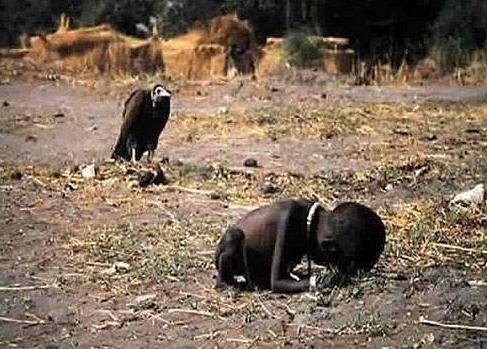MeDeFe wrote:It's 306 words, without the first and the last line that are obviously not part of the main text. The quantity is there, but the quality is so lacking that I hardly know where to begin.
I'll make a list of the main points and then go into the details as necessary.
Firstly, you do not understand the meaning of "possible", particularly "logically possible". A concept is logically possible if it contains no internal contradictions. Just for the sake of completeness: The other important category is "naturally possible", a concept is naturally possible if it does not contradict the natural laws of our world.
Ok, but anything naturally possible is also logically possible, right? IDK where you're going here but I'll wait...
MeDeFe wrote:Secondly, you claim that natural selection is a process with a direction, that it will lead to a particular goal. This is bullshit of the highest degree, with one ounce of this dung you could fertilize enough land to bring an end to starvation all over the world.
So you're saying natural selection is random? It's not. It tends to select for the fittest. Otherwise it would be pointless. There is a direction.
MeDeFe wrote:Thirdly, you fail to understand that even if it is in any way possible to apply natural selection to things like religion, you cannot deduce that religion must be good for society in order to perpetuate itself.
Yeah I can't. I'm not trying to deduce though, it's inductive. If a religion shows itself to be good for many societies in the past, it will likely (not certainly) be good for society in the future.
MeDeFe wrote:Fourthly, you seem to think that natural selection is a philosophical or moral position, in this regard you're simply wrong. Natural selection is a concept that originated in biology strictly to explain biological phenomena through a natural process, while it may be possible to describe phenomena outside of biology with this process, it has no moral, ethical or philosophical contents whatsoever.
Yeah, I'm not trying to discover ultimate truth/morality using natural selection, just explaining how our current system of morals came to be. Societies with morals that didn't work died, ones with working morals survived, and passed on their system of morality. That's why natural selection applies, and how it helps determine the morals that are best for society as a whole.
MeDeFe wrote:1. Possibility
"A world better than the one in which we live." I see no contradictions in such a sentence but, admittedly, it lacks contents and the question "Better how?" is reasonable to ask, so let's say "a world in which noone starves". Arguably starvation is a bad thing and a world in which noone starves would be better than the current world in which some people starve. I can easily imagine a world in which noone starves that is otherwise identical to ours in all relevant aspects. I see no contradictions in the term "a world with no starvation". Unless you can show me how the term itself if meaningless we must conclude that such a world is logically possible.
If a better world is logically possible, Leibniz and Pangloss can suck my dick.
Ultimately it is very hard to tell whether starvation is good or bad. What if I told you that the smarter someone is, the less likely they will starve, so starvation tends to kill off less intelligent people, making our species smarter, and leading to more progress and prosperity for thousands of generations into the future? It's how the rest of the animals on Earth work. That's why I bring up natural selection so much, because it accounts for this, and helps explain why some suffering might ultimately be good.
MeDeFe wrote:2. The non-directedness of natural selection
Natural selection posits that the fittest individuals of a given population are more likely to pass on their traits to a larger number of offspring than the average. "Fittest" can be defined as "best adapted to the given environment". This means, however, that "fitness" is not something absolute but relative to an overall situation, if the environment changes, the traits that used to be contributive to fitness may turn out to be a disadvantage.
Traits that are advantageous may be linked to other traits that are disadvantageous and will appear together in a significant amount of individuals, thus leading to no overall increase in fitness. E.g. Vipera berus, the dark individual tend to be somewhat larger and stronger and they need less time to get warm in the sun, however, predators that prey on them also have an easier time spotting them.
Nowhere in the definition is there any such thing as a "direction" of natural selection, it is a mindless process that will work in any way depending on any number of details.
See above, natural selection will sometimes work for the worse, but those bad traits will be "deselected" in time. I'm not talking about individual cases or species, I'm talking over long, long periods of time. NS will always do exactly what it needs to do to ensure that species (or anything) survive by becoming better. To go back to the Catholic Church example, if they still required masses in Latin and persecuted all nonbelievers or anyone who broke a single commandment, you can bet they wouldn't be where they are today. They adapted to the times and are doing fine.
NS is a mindless process, but so is gravity, and that is very predictable and definitely has a direction. They are both facts of nature.
MeDeFe wrote:3. Natural selection, memes and benefit to other entities
Applying the same reasoning as you did, virtually all viruses ought to be beneficial for us since those that somehow make us (their carriers) better should have an edge over those that make us sick. I think empirical evidence will disagree with this. Likewise, if you want to apply natural selection to cultural memes like religion, you need to ask yourself "How do tubgirl and meatspin benefit society?", or maybe lolcats if you want a more innocent example. Yes, from the standpoint of natural selection there's no difference between religions and pictures of cats with captions.
I'm not sure what you mean with the viruses, and what empirical evidence you're talking about, but I'll take your word for it. TG/MS/LC are hilarious/shocking and provide entertainment, and if they didn't then they would hardly be known. Who says they don't benefit society when people are entertained by them?
MeDeFe wrote:This is because your basic understanding of natural selection is flawed, you argue that religion (especially Christianity) must be beneficial to society because it has been around and dominant for so long. But then you're putting the cart before the horse because what you're really doing is applying natural selection to societies and concluding that their religions play a role in their dominance
I don't say it MUST be beneficial, I say it probably is beneficial, because if it wasn't, then how do you explain its predominance in many of the world's most developed countries for hundreds/thousands of years?
MeDeFe wrote:If you apply natural selection to memes, the memes need only be beneficial to themselves in order to be perpetuated, they may be beneficial to society, but they may equally be detrimental, there is no way to tell since society is the environment in which they thrive or perish.
But if they were detrimental to society, the society would tend to die off, taking the meme with it.
MeDeFe wrote:On the other hand, if you apply natural selection to societies religion becomes merely one factor among thousands, under those circumstances it is simply foolish to conclude that religion must be the one contributing factor to a society's dominance.
Yeah I'm not giving religion ALL the credit. But you can't deny that it's a huge social force and has a large impact on how a society operates. You could say the same about systems of government for that matter- the bad ones will die off. Those two definitely deserve a lot of the credit for determining how well a society does.
MeDeFe wrote:4. The lack of moral, ethical and philosophical contents in the process of natural selection
Let's go back to my earlier definition of natural selection. "Natural selection posits that the fittest individuals of a given population are more likely to pass on their traits to a larger number of offspring than the average. "Fittest" can be defined as "best adapted to the given environment"."
Yeah. Sometimes I'll stretch the principle beyond biology because I think it's a universal principle, but w/e.
MeDeFe wrote:Please demonstrate where in this definition there is anything regarding morality, because I don't see it. I don't even see why you could possibly think there is. While you're at it, please explain where you got the harebrained idea that killing people is beneficial towards spreading ones genes around.
Well like I was saying, I think it applies to things other than biology as well.
Actually I looked up the exact definition of survival of the fittest and found out about this guy:
http://en.wikipedia.org/wiki/Herbert_Spencerwho as you can see extended the concept to societies and culture as a whole (I knew I couldn't have been the first lol). Check this out:
Wikipe-tan wrote:Spencer's interest in psychology derived from a more fundamental concern which was to establish the universality of natural law. In common with others of his generation, including the members of Chapman's salon, he was possessed with the idea of demonstrating that it was possible to show that everything in the universe—including human culture, language, and morality—could be explained by laws of universal validity. This was in contrast to the views of many theologians of the time who insisted that some parts of creation, in particular the human soul, were beyond the realm of scientific investigation. Comte's Systeme de Philosophie Positive had been written with the ambition of demonstrating the universality of natural law, and Spencer was to follow Comte in the scale of his ambition. However, Spencer differed from Comte in believing it was possible to discover a single law of universal application which he identified with progressive development and was to call the principle of evolution.
In 1858 Spencer produced an outline of what was to become the System of Synthetic Philosophy. This immense undertaking, which has few parallels in the English language, aimed to demonstrate that the principle of evolution applied in biology, psychology, sociology (Spencer appropriated Comte's term for the new discipline) and morality. Spencer envisaged that this work of ten volumes would take twenty years to complete; in the end it took him twice as long and consumed almost all the rest of his long life.
So anyway, the morals that are better for society will tend to last longer than those that don't. Simple enough. That's how we developed our international sort of moral code in recent years (e.g. just war theory, diplomacy, Geneva Convention, etc.), because it promotes our survival, and we aren't dumb enough to blow each other to smithereens.
There you go, if you won't respond to that then I can't say I'd be surprised...


























































































